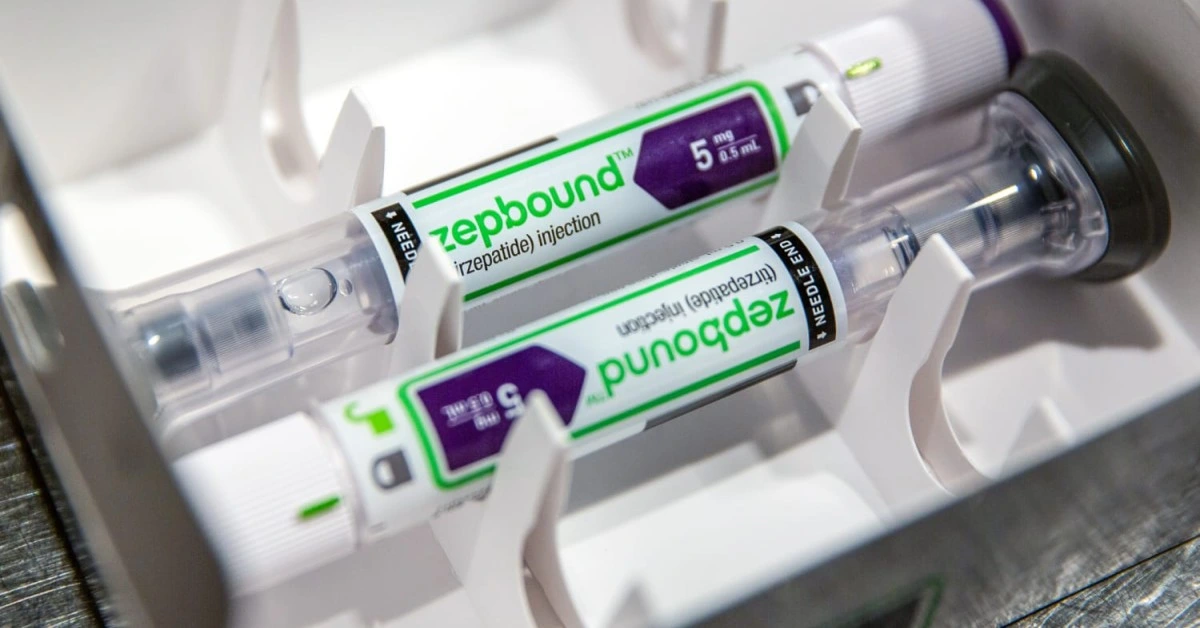
USA – Medicare drug plans can now provide coverage for Eli Lilly’s obesity drug, Zepbound, when prescribed for obstructive sleep apnea (OSA), according to confirmation from CNBC.
This development significantly broadens access to Zepbound, which has not been widely covered by Medicare or many other insurance plans when prescribed for weight loss.
Despite its high price of approximately US $1,000 per month before insurance, demand for the injectable treatment has surged over the past year.
The Centers for Medicare & Medicaid Services (CMS), a branch of the U.S. Department of Health and Human Services, clarified in a statement to CNBC that “current Medicare Part D and Medicaid coverage rules apply” to Zepbound.
This comes after the FDA granted the drug landmark approval in December for treating the most common sleep-related breathing disorder.
Under existing rules, Medicare Part D plans can only cover obesity drugs if they are prescribed for an additional medically accepted use that has received FDA approval.
A CMS spokesperson explained that Part D plans may require prior authorization, a process in which a provider must obtain insurer approval, to ensure the drug is being used for its approved purpose.
On December 20, the FDA approved Zepbound for patients with obesity and moderate-to-severe obstructive sleep apnea, a condition characterized by interrupted breathing during sleep due to narrowed or blocked airways.
This approval marked Zepbound as the first drug treatment available for an estimated 20 million individuals with these forms of the disease, according to Eli Lilly.
Eli Lilly expressed optimism about Medicare’s coverage of Zepbound for this condition, describing it as “good news” in a statement issued on Thursday.
Medicare Part D plans are similarly permitted to cover Novo Nordisk’s weight loss drug Wegovy when prescribed for its FDA-approved purpose of reducing cardiovascular risks.
Additionally, the diabetes versions of Wegovy and Zepbound—Ozempic and Mounjaro, respectively—are covered by Medicare and most private insurance plans.
Both Eli Lilly and Novo Nordisk are expanding their research on these weight loss drugs, investigating their potential as treatments for other conditions such as fatty liver disease, chronic kidney disease, and sleep apnea.
To secure coverage, these drugs must complete late-stage clinical trials and receive FDA approval for the additional indications.
State Medicaid coverage for Zepbound and other obesity medications varies depending on the condition being treated and whether the drug manufacturer has entered into a Medicaid drug rebate agreement.
Under such agreements, manufacturers provide rebates to states in exchange for Medicaid coverage of their drugs, with the rebates shared between states and the federal government.
For Zepbound, state Medicaid programs are required to cover the drug when prescribed for OSA, provided Eli Lilly has signed the Medicaid drug rebate agreement.
However, Medicaid programs are not obligated to cover Zepbound if it is prescribed solely for weight loss.
In November, the Biden administration proposed a rule that would enable Medicare and Medicaid to cover weight loss drugs for patients with obesity.
If implemented, the rule could grant millions of individuals access to these treatments, including weekly injectables like Zepbound. However, the proposal is projected to cost taxpayers up to US $35 billion over the next decade.
It remains uncertain whether the incoming administration under President-elect Donald Trump will move forward with this proposed rule.
XRP HEALTHCARE L.L.C | License Number: 2312867.01 | Dubai | © Copyright 2025 | All Rights Reserved